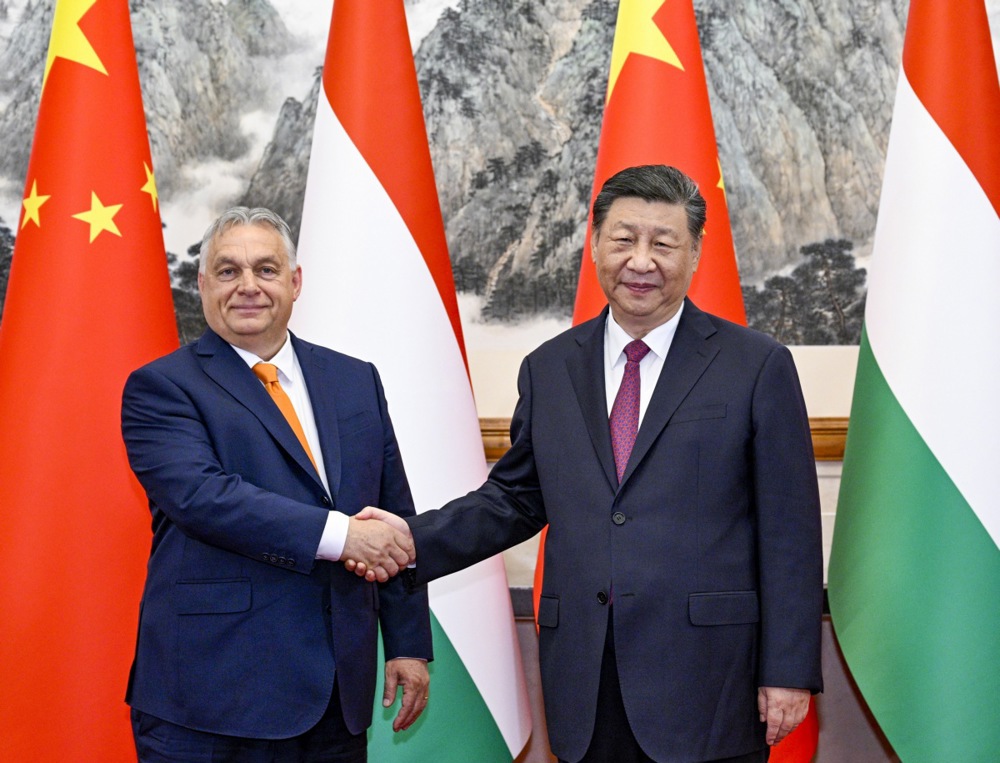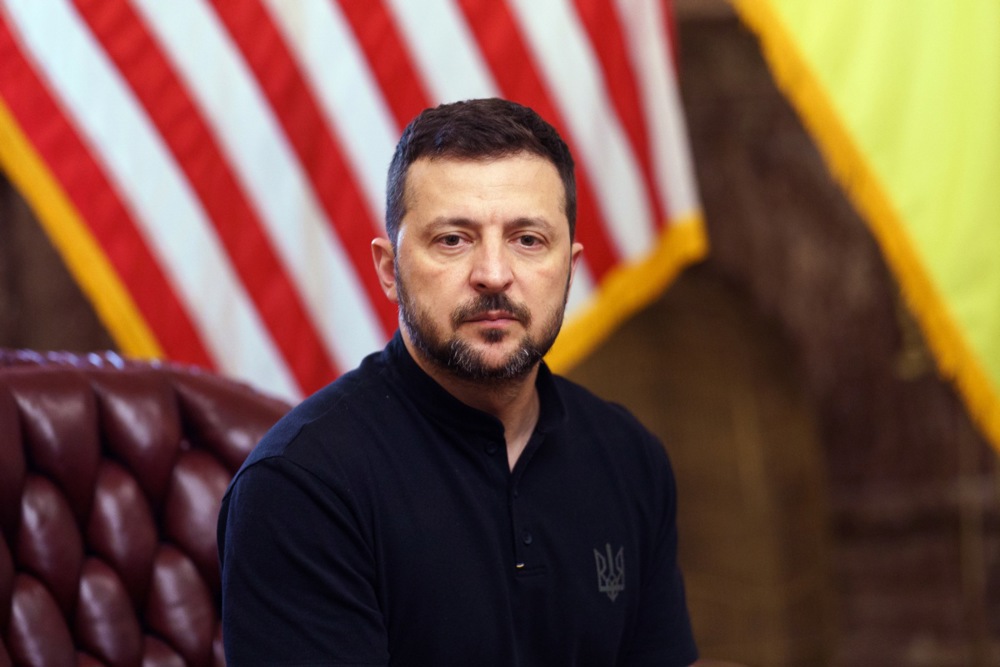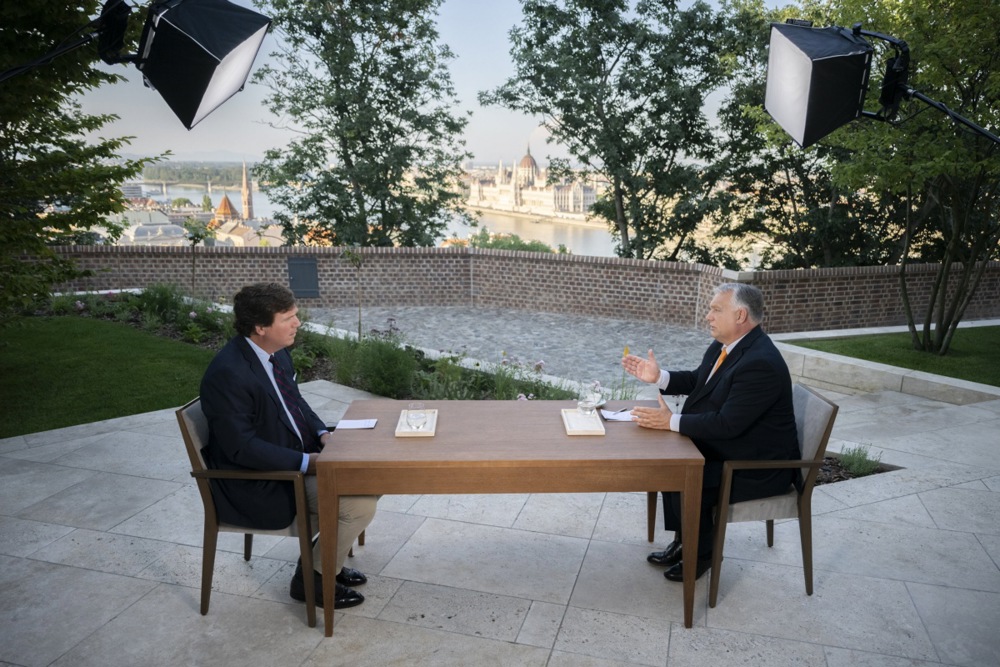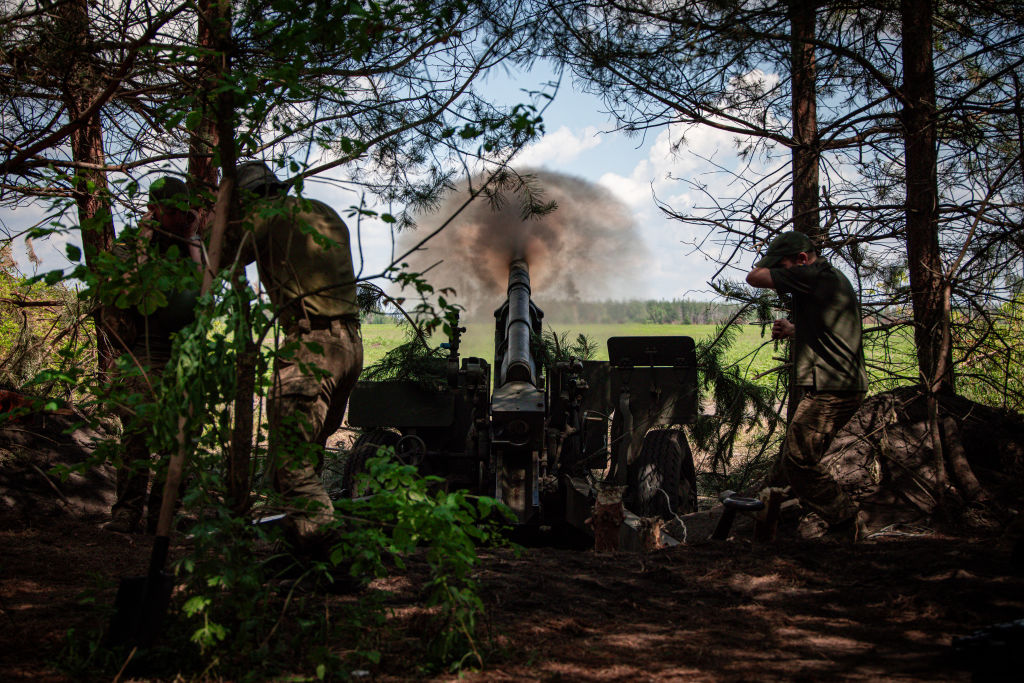Hungarian PM Viktor Orbán has published a memo he wrote for European Union leaders in which he warns of an imminent escalation of the Ukraine war.
The memo, initially addressed to outgoing EU Council chief Charles Michel, details his impressions from recent meetings with world leaders including Volodymyr Zelensky, Vladimir Putin, Xi Jinping, Recep Tayyip Erdogan, and Donald Trump.
“It is a general observation that the intensity of the military conflict will radically escalate in the near future,” Orbán wrote.
Neither Russia nor Ukraine plans to hold peace talks soon, he pointed out.
“I personally witnessed that the warring parties are determined to involve themselves deeper into the conflict, and neither of them would like to make initiatives for a ceasefire or peace negotiations,” he wrote.
He also posted a video on the social media website X, in which he claimed it is “impossible to find a solution on the battlefield”, and warned in the absence of a ceasefire, thousands of innocent people would die.
“The solution is not on the battlefield, the solution is at the negotiating table. Ceasefire, negotiation table, that is what I try to convince them of. But you know, it takes time,” said Orbán.
#EPCSummit in Blenheim.
Thousands and thousands are dying on the battlefield every day. We will find no #peace on the battlefield, but only at the negotiating table. My goal is to convince European leaders to make a shift to a pro-peace policy. pic.twitter.com/AG46FPCvmG
— Orbán Viktor (@PM_ViktorOrban) July 18, 2024
The EU, United States, and China can use their influence to push for peace talks, says Orbán.
Turkey, an important regional player, has been the only successful mediator between Ukraine and Russia since the war began and should be considered as well, he says.
China favours a ceasefire and peace talks, but will not play an active role for the time being because chances for success are low.
In the US, all of the nation’s attention is absorbed by November’s elections, Orbán says.
In case of a Trump win, the US will push for peace immediately and Donald Trump, currently leading in the poll, has “detailed and well-founded plans for this”, he says.
A November victory by Donald Trump would mean “the proportion of the financial burden between the US and the EU will significantly change to the EU’s disadvantage when it comes to the financial support of Ukraine”, says Orbán.
The EU has followed the US’s “pro-war policy” during the Biden administration and does not have “a sovereign and independent European strategy or political action plan”, Orbán warns.
The EU should “begin a new chapter” and “could make an effort to decrease tensions and/or create the conditions for a temporary ceasefire and/or start peace negotiations”, he says.
The Hungarian PM also suggests beginning talks with China on a new peace conference, and reopening direct lines of diplomatic communication with Russia.
Furthermore, he suggests, the EU should launch a coordinated political offensive towards the Global South, noting the transatlantic community is now isolated globally.
Participants have also discussed creating a more autonomous European policy at the fourth summit of the European Political Community (EPC), on July 18 at Blenheim Castle, near Oxford in the UK.
The EPC, established by French President Emmanuel Macron in 2022, is an intergovernmental forum to foster strategic dialogue on Europe’s future.
“The essence of our concept, which differs from the official concept, is that the European Union should not copy the foreign policy of the American Democrats, but should have its own European approach in the spirit of strategic autonomy – and we are constantly advocating this here,” Orbán said July 18.
Orbán did not address the public scolding European Commission president Ursula von der Leyen gave to his self-described peace mission in her speech to the European Parliament.
Von der Leyen called Orbán “an appeaser” in her address to MEPs.
Orbán claimed, though, he was making progress. “It is not easy when there are headwinds, but so far we have taken all the steps as planned,” he said.
When news of his Orbán’s rogue trip broke, the EU’s leaders were quick to stress the Hungary’s PM did not have a legal mandate to engage with Russia on behalf of the EU.
The EU stands squarely on the side of Ukraine, EU leaders affirmed.
Later, the European Commission and some member states decided to boycott the remainder of Hungary’s six-month presidency of the Council of the European Union.
At the EPC, Ukrainian president Volodmyr Zelensky said there has been “unity in Europe by acting together, which means that Putin has missed his primary targets … This is our advantage, but it remains an advantage only as long as we are united.”
He warned Putin may try to approach individual member states, “trying to tempt or pressure you to blackmail you so that one of you betrays the rest”
“If someone in Europe tries to resolve issues behind our backs, or even at the expense of someone else, if someone wants to make some trips to the capital of war to talk – and perhaps promise something against our common interests or at the expense of Ukraine or other countries – then why should we consider such a person?”
“The EU can also address all their issues without this one individual.”
Zelensky said peace can be achieved, though by collective strength and beating the aggressor.
He referred to Peace Summits, the first of which was organised by Switzerland in June, and says he was preparing a second one.
In those summits, Ukraine pushed for a Peace Formula which envisages “preventing ecocide in Ukraine, punishing those responsible for war crimes, withdrawing all Russian troops from the territory of Ukraine, restoration of Ukraine’s territorial integrity, and the release of all prisoners of war and deportees. The proposals also call for ensuring energy security, food security, and nuclear safety.”
Today at Blenheim, a place associated with Winston Churchill, I addressed leaders at the European Political Community Summit. I stressed the importance of unity, bravery, and decisive action in defending our values and ensuring a peaceful, secure, and prosperous future for… pic.twitter.com/z60FoBUebZ
— Volodymyr Zelenskyy / Володимир Зеленський (@ZelenskyyUa) July 18, 2024





